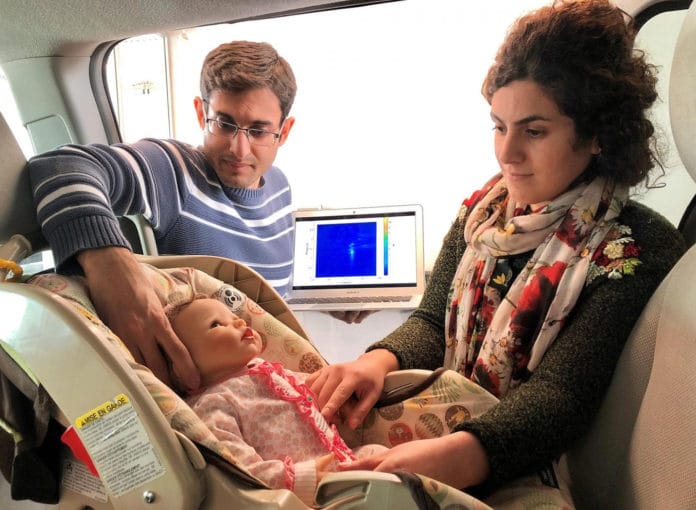A small, cheap sensor can effectively solve the problem of tragic cases of leaving a child or pet accidentally or deliberately in the car, a scenario that can result in serious harm or death in extremely hot or cold weather. To solve this global problem, researchers at the University of Waterloo has presented a prototype device that, using artificial intelligence, can sense a child or a pet is left alone in the car and activate the alarm.
At a diameter of 3 centimeters, the device fits in the palm of your hand. It connects the radar transmitter and receiver with software that uses artificial intelligence tools to monitor the interior of the car.
The AI sensor consumes little power from the vehicle’s battery, can be mounted on the rear-view mirror or on the ceiling, emits radar signals, and analyzes their reflection from the objects, people, and animals in the cabin. If the system notices that there is a child or dog in the car, it activates an alarm that is addressed to the driver of the car, or to people close to the car. Meanwhile, the system prevents the vehicle from locking.
As explained by Professor George Shaker, the device distinguishes between living beings and inanimate objects by detecting subtle breathing movements.
Tests have shown that it can detect unattended children or animals with 100% accuracy. Unlike cameras, this technology preserves privacy and has no blind spots, since radio waves can penetrate through the seats.
In addition, the analysis of the AI sensor allows you to determine the number of passengers and their location in the vehicle. This information can be used to set rates for ride-sharing services or to qualify vehicles for car-pool lanes.
The development of this technology is funded by the car parts manufacturers who want to launch it by the end of next year. Currently, engineers are already exploring the potential of using the device to monitor drivers’ vital signs for signs of fatigue, distraction, disorders, illnesses, or other problems.
